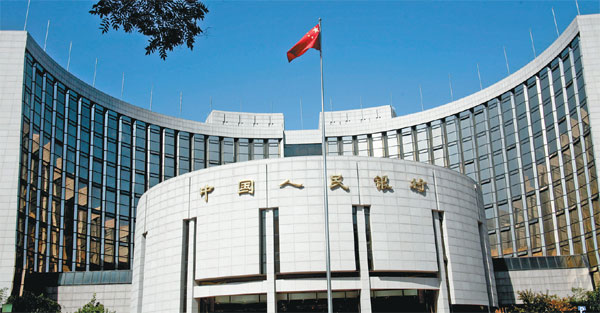Yuan globalisation is choice of the market
Updated: 2012-07-13 11:26
By Wei Tian (China Daily)
|
|||||||||||
 |
|
The headquarters of the People’s Bank of China in Beijing. Wang Zichuang / for China Daily |
The internationalisation of the yuan is the will of the market rather than a government-backed move, People's Bank of China Governor Zhou Xiaochuan said on June 4.
"It is the result of the growing power of the nation and its financial market boom ... although there is still much to do considering the low level of development and openness," Zhou said in an interview with China Business News.
According to Zhou, China needs to continue removing restrictions on transactions such as "settlement only in hard currencies", and further open the nation's financial markets.
"In general, we should do our homework and let the market decide which currency should be used," he said.
"What we can say is this, the RMB has the potential to become a more globally accepted currency," he added.
Echoing Zhou's comments, an earlier statement from the State Council said that the country will speed up the opening of its financial markets, including allowing qualified foreign institutions to invest in China with the yuan, and expanding the use of the yuan in foreign markets, such as cross-border settlement, and as an international reserve currency.
Meanwhile, the country will encourage Chinese banks to develop foreign businesses, to support the internationalisation of Chinese enterprises and allow high-quality foreign financial institutions to participate in the reform of their Chinese counterparts, the statement said.
"The acceptance of the RMB as an international currency has been proven by the fast expansion of the currency globally in recent years," said Ding Zhijie, dean of the School of Banking and Finance with the University of International Business and Economics in Beijing.
"Acceptance of a currency in the global market is related to convenience and its ability to hold its value," said Li Jing, a researcher with the Chinese Academy of Social Sciences.
"However, the majority of trade settlement in the RMB was still made in imports, while most exporters continue to receive US dollars, resulting in a continuous increase in the foreign exchange reserve," Li said.
To further the internationalisation of the currency, China should consider opening its capital account, Ding said.
"Talking about opening the capital account, the first thought that comes to mind is capital outflow," Ding said.
"In fact, a better environment will enhance the market's confidence in the Chinese economy and encourage investors to return.
"Opening the capital account may also increase pressure for the RMB's appreciation, but it may not be serious at the moment."
While China promotes financial reforms and the internationalisation of its currency, pressure on the country's fast-growing foreign exchange reserve will be eased.
China's international balance sheet will continue to report a surplus in both the current and capital accounts, but the volume will decline sharply, according to a statement from the State Administration of Foreign Exchange.









